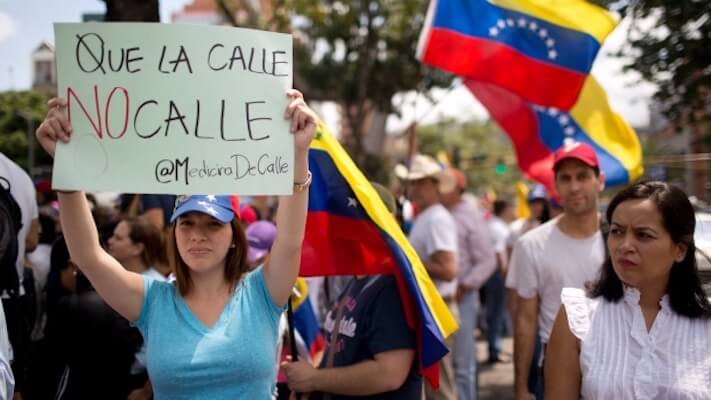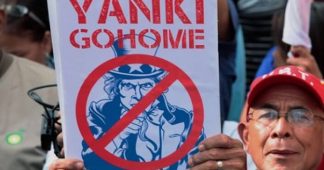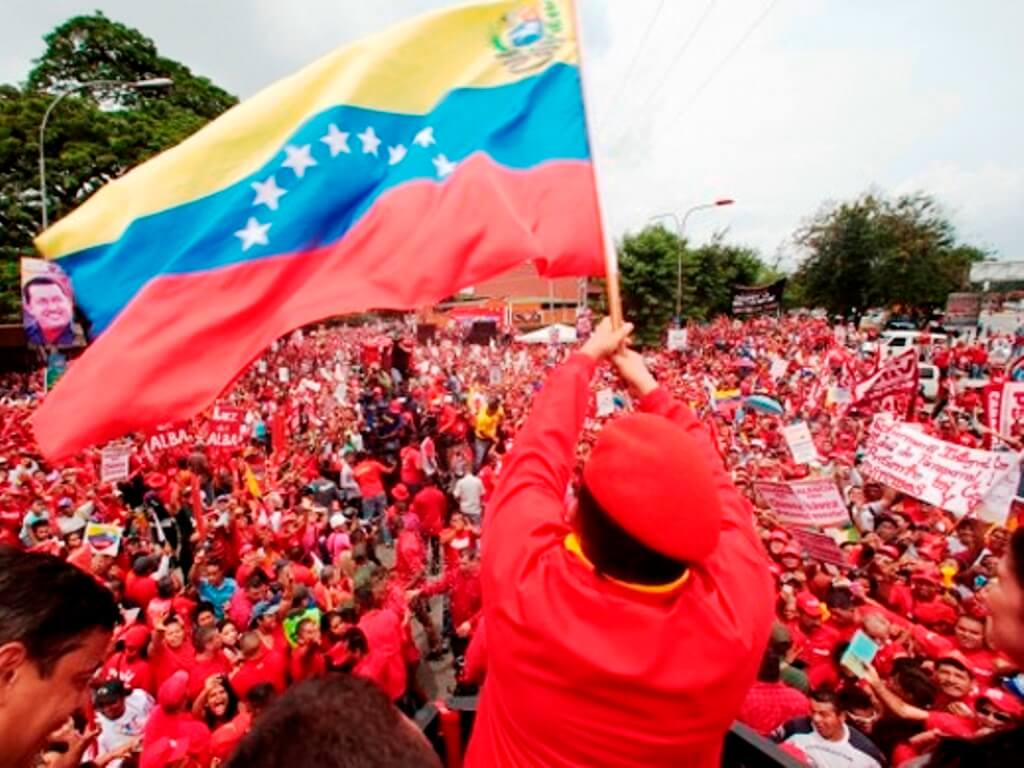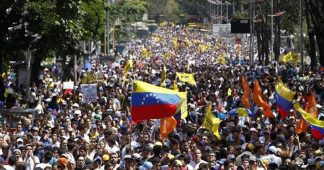By RYAN MALLETT-OUTTRIM
Journalists generally aren’t supposed to print their own imaginary stories as established fact, but that’s exactly what seems to happen on a regular basis when covering Venezuela. The latest example of this was the viral story of a mob of half starved Venezuelans descending on a zoo to consume a prized show horse. At the time of writing, the latest incarnation of the story had been published by the UK’s Daily Mirror newspaper, under the grim title, “Hungry gang butchers thoroughbred horse after breaking into zoo in search of food ‘due to economic crisis’”.
The report by the Mirror’s Kirstie McCrum explained, “A gang in search of food broke into a zoo at night and butchered a horse for food, it has been reported.”
“The shocking incident in Caraca[s] has been held up as an example of the desperation of the Venezuelan people who are enduring a severe economic crisis,” she wrote in the piece, which was published on August 19.
The same grisly killing has likewise been covered by Fox News, the Daily Mail,Metro, First Post and others.
Most incarnations of the piece in English appear to be based on an article fromFusion back in late July, which likewise blamed “hungry Venezuelans” for the death of the horse. The general idea is that Venezuelans are now so hungry and desperate, they’re eating anything they can get their hands on.
As Venezuelanalysis’ Tamara Pearson has pointed out, that’s not quite how the story has been reported in Venezuela.
Despite still doing the rounds in western media, the story made only a brief appearance among Venezuelan headlines on July 25, when newspaper Ultimas Noticias reported authorities were investigating the killing of a horse the day before.
Seemingly based on a press release from the Venezuelan public prosecutor’s office, the article made no mention of a ravenous horde of emaciated Venezuelans – just a group of unidentified individuals. There was no mention of anyone eating the horse, though prosecutors did note the carcass did indeed appear stripped of much of its flesh.
Perhaps the flesh was indeed eaten by a bloodthirsty mob, but maybe not. After all, people kill animals for all kinds of reasons other than food, and break into zoos for some pretty strange reasons. For example, in 2012, Polish media reported a giraffe died after a group of people threw garbage at it. In 2005, a mandied after breaking into an Australian zoo and seemingly raiding an ice cream machine. At the same zoo in 1985, 65 animals were massacred during a break in. The animals ranged from guinea pigs to baby kangaroos, and even an alligator. Illustratively, an article about the afore-mentioned Australian zoo massacre refrained from speculating over the motives or characteristics of the suspects, referring to them simply as “unknown people”.
Fast forward back to the modern day, and Ultimas Noticias followed a similar route, labelling the suspects as “various people”. Yet somehow, when the story entered the English language press, those “various people” morphed into “Starving Venezuelans” at the Daily Mail. Then like a game of Chinese whispers, the original message became more and more distorted. At the Telegraph, they evolved into “Venezuelans suffering from hunger and shortages”, before becoming a fully fledged “hungry mob” at inquisitr.com. Finally, the mob formed a “gang” of horse eaters over at the Daily Mirror.
Of course, this is far from the first story of Venezuelans supposedly chowing down on random animals. This trope first became popularized in the western media back in May, when Emiliana Duarte from Caracas Chronicles penned a piece for the New York Times. She noted, “Our mayor recently noted that stray dogs had all but disappeared from our neighborhood, and people are hunting pigeons in the main square.”
Caracas Chronicles is the same blog that brought English readers dire news of the Venezuelan government’s butchering of uncounted numbers of opposition supporters during the night of February 19, 2014. At the time, FAIR noted the piece seemed a little far fetched, while an investigation by Venezuelanalysis later concluded no such massacre occurred at all. The author, Francisco Toro, later admitted the piece was an “overstatement in the heat of the moment”. Later, he defended the original article by likening his blogging to a “note hurriedly scribbled on the napkin of history”.
This mentality partly explains why extraordinary claims are so often made about Venezuela. When journalists adopt a philosophy of ‘shoot first, ask questions later’, audiences end up being treated to back-of-the-napkin commentary dressed up as news. Speculation about starving Venezuelans eating stray animals and raiding zoos get dressed up as established fact. However, there’s another reason why these dubious stories become viral.
Put simply, Venezuela has become one of those countries. Those countries are parts of the world that western audiences have an insatiable interest in, but where credible information can be hard to come across. North Korea has long been the poster child for those countries. The situation was perhaps best described by The Washington Post’s Max Fisher, who paraphrased fellow reporter Isaac Stone Fish as once joking, “As an American journalist you can write almost anything you want about North Korea and people will just accept it.”
“Call it the Stone Fish Theory of North Korea coverage,” he noted.
For journalists, Venezuela isn’t much different. Forbes recently claimed the country has re-instituted “agricultural slavery” (they haven’t), AFP has reported hamburgers now cost US$170 in Venezuela (actually, they cost around US$4), while the LA Times thinks eggs sell for US$150 (again, more like US$3).
When writing about those countries, back-of-the-napkin journalism is generally considered acceptable, meaning bogus news pieces all too often go unquestioned. Meanwhile, the most exciting, other worldy accounts go viral.
The Stone Fish Theory fits so comfortably with Venezuela coverage nowadays, it was no surprise The Washington Post openly compared Venezuela to North Korea as this article was being written.
The real shame here is that audiences genuinely want credible information about Venezuela, but can’t get it without knowing how to separate the wheat from the chaff. Traditionally, journalists themselves are supposed to be the ones that weed out misinformation to uncover the hard facts. However, for those countries, journalists have largely abdicated that role, and saddled their own readers with the obligation to sort out what’s true, and what’s fabrication. Since journalism isn’t going to change anytime soon, here’s a tip for readers: if it sounds unbelievable, it probably is.











